TRENDS IN WINE CONSUMPTION
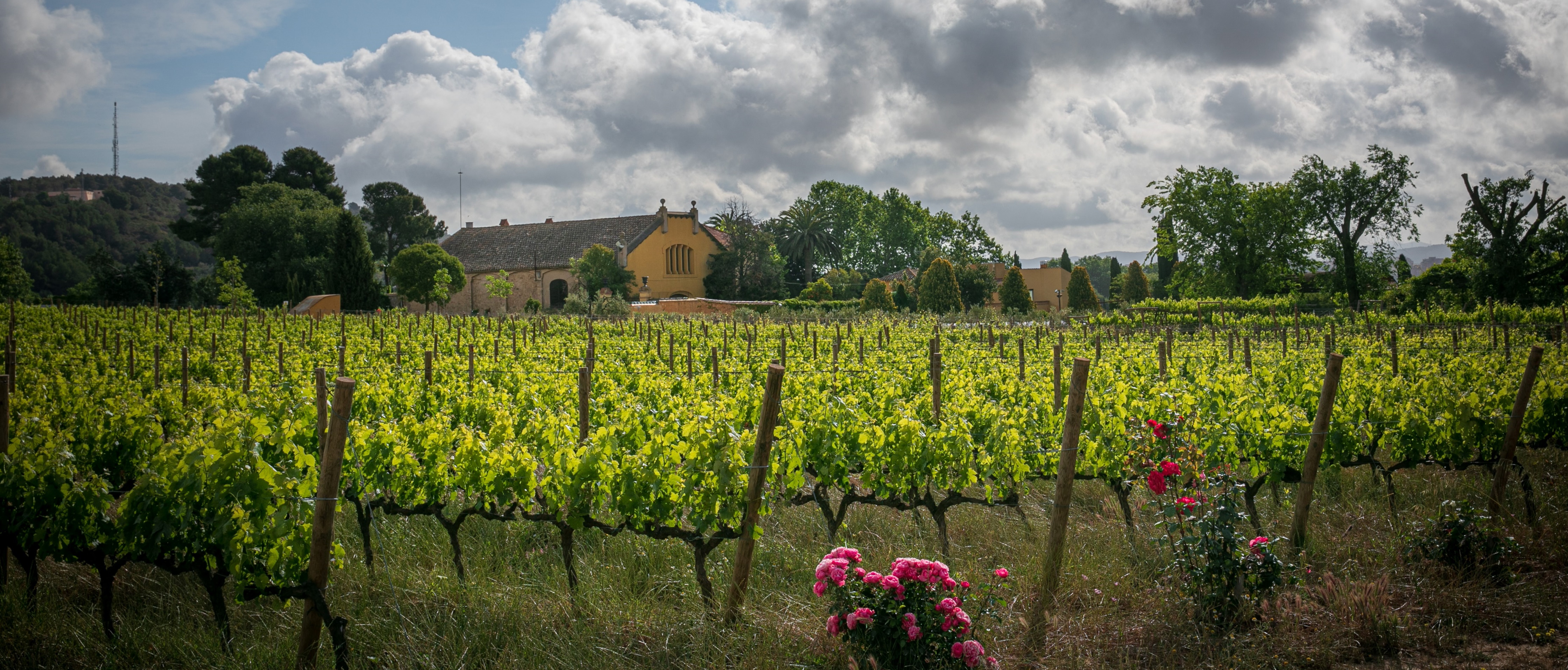
Technology and Climate Change as Agents of a New Paradigm
Trends we once projected into the future have become a new reality, shaping a social paradigm that influences what we do, who we are, and what we consume: our interpersonal relationships, our decentralized work life, our awareness of our health and environment. The tangible impact of climate change has also brought about new consumption trends.
A new, more health and environmentally conscious generation is demanding wines that are certified organic, less oaky, lower in alcohol, distinctive in their identity and what sets them apart.
In organoleptic terms, consumers are seeking freshness and fruit; subtle wood-imparted notes that are not excessively dominant; dry whites characterized by aromatic intensity and excellent acidity; light versatile reds. Sparkling rosés are also growing in popularity.
We can see this greater health consciousness reflected in consumers’ purchasing decisions. We are more aware and discerning in the foods we consume. A premiumization of sorts is coming to define the world of wine lovers, with customers seeking wines of exceptional quality. Less is more and better. This means that parameters other than organoleptic qualities also come into play when choosing a wine. Whereas provenance, authenticity, and traditional methods were once a rising trend, by now they are a must. Consumers want wines with a clear, well-defined identity that reflect their own values. This has also brought about a shift from a global to a local perspective.
Pairings are becoming simpler and more flexible as a result of our increasingly versatile eating habits, which call for the same kind of versatility in the accompanying wines – new wines that spring from an understanding of this new reality.
This greater awareness of our environment and well-being translates into demands which wine producers would be wise to keep in mind – in how they work the vineyards, the winemaking methods they use, how they relate to their suppliers and distribute their wines. Consumers are on the lookout for organically certified wines from producers who implement emission-reduction measures during their winemaking and distribution processes.
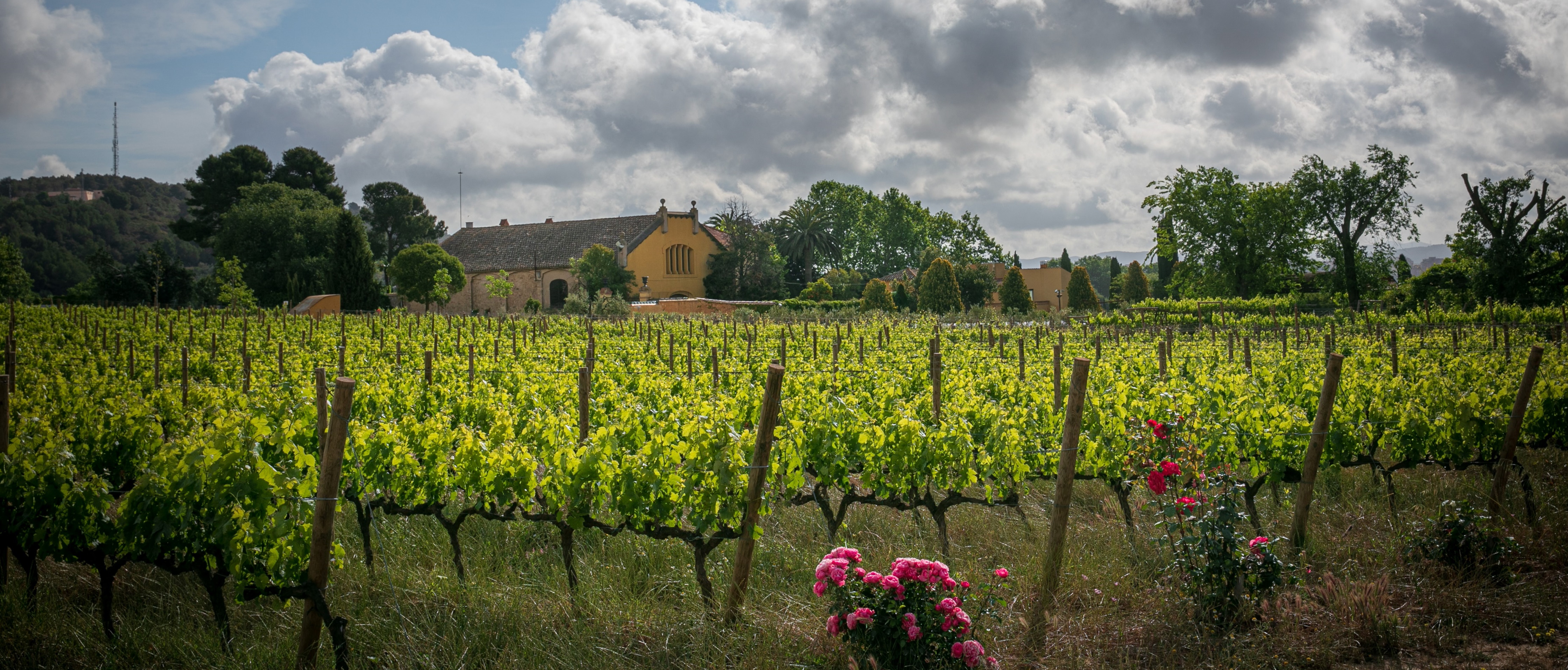
Mas La Plana estate, a Familia Torres property
In addition to the wines themselves, wine lovers seek guidance on their knowledge-seeking adventure. They are more selective, curious, and eager to expand their understanding of wine. Wine producers are in a perfect position to take on this role, accompanying consumers as they explore the wine world on platforms that enable a direct and transparent exchange, where they can find answers to their questions and dive into educational or entertaining contents.
The search for greater well-being and health through technology, environmental awareness, locally sourced products, and a return to the traditional and authentic are informing a new reality that is defining key aspects of how we interact with our environment and what it has to offer. And wine is no exception.
Faced with a globalized world in which homogenized production standards have resulted in wines that are excellent but lack personality, producers are turning to self-expression and an embrace of their own identity to set themselves apart. In doing so, their work becomes an exercise in introspection, an archaeology of one’s own heritage, so to speak. Getting lost to find onself (again).
In addition to the human factor, we must consider the winegrowing consequences of the progressive, climate-change-induced rise in temperatures. The impact is clear and exerts a decisive influence, not only on wine quality but the future map of winegrowing regions and their varieties.
Salmos Vi de Vila proudly represents the village of Porrera and the Priorat wine region. A reflection of the ancestral winegrowing traditions of the region, the wine champions its provenance; deeply grounded in the old slate soils of Porrera, it speaks to palates far and wide. A blend of Garnacha and Cariñena, Salmos reaches for the sky but is grounded in the land.
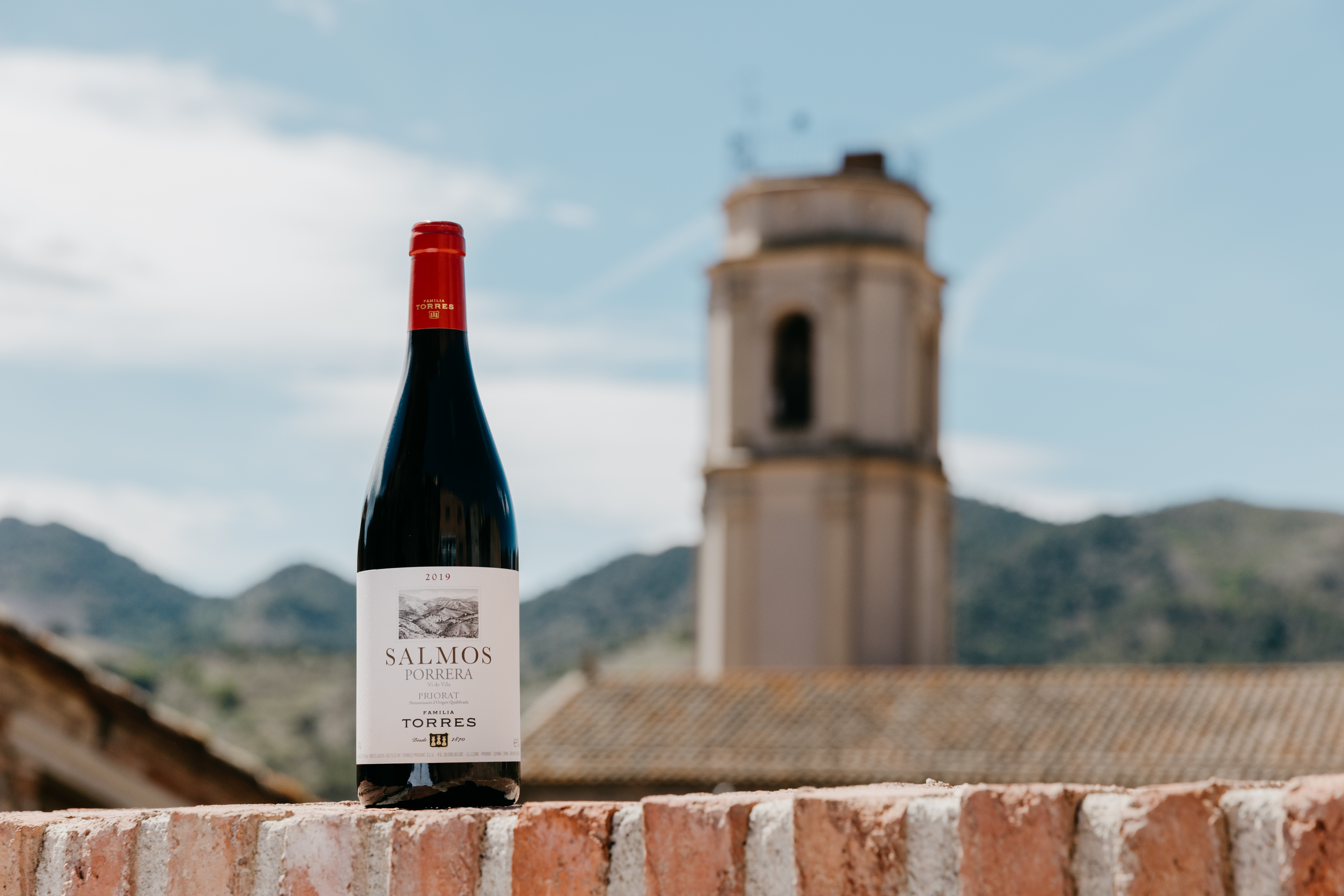
Salmos 2019, a Familia Torres property, with the landscape of Porrera in the background
The combination Forcada-Xarel·lo makes Clos Ancestral White a wine of incomparable authenticity. Clos Ancestral White 2022 is an organic wine born from a vinicultural-archaeological endeavour to revive a shared heritage of the Penedès. Radiant, clean, pale yellow in colour. Delicate and seductive, revealing a symphony of fruit aromas (lemon, grapefruit, tangerine). Fresh, lively, juicy on the palate with fine fruit extract.
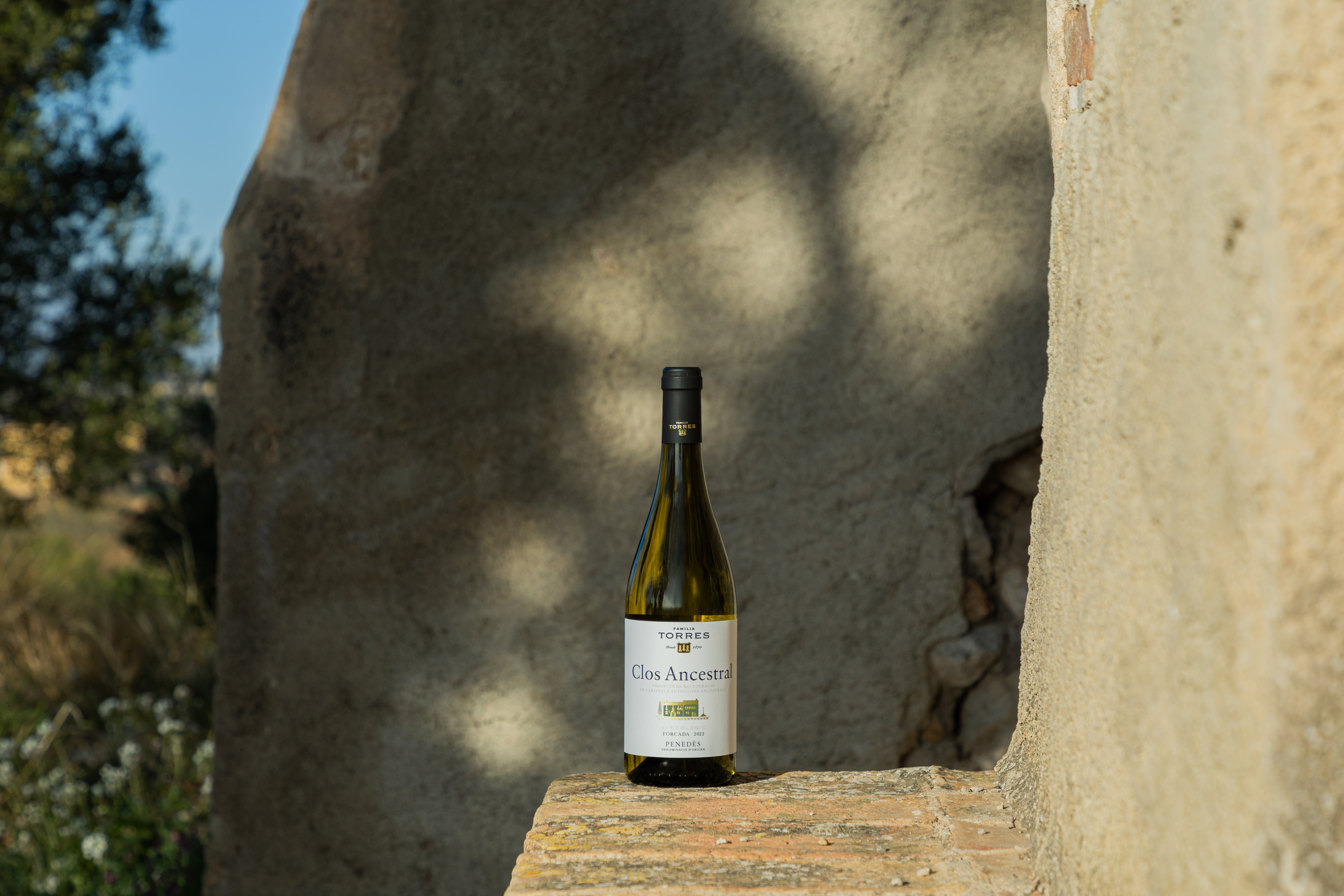
Clos Ancestral White, a Familia Torres property, is a white wine from DO Penedès
Cuvée Rosé de Mar 2017 is an extra brut rosé, exquisitely refined and food-friendly in style, where Pinot Noir and its characteristic cherry notes come to full expression, framed by fine fruit acidity in perfect harmony with nuances imparted by long bottle ageing of at least 39 months. The most elegant response to the current “hype” surrounding sparkling rosés.
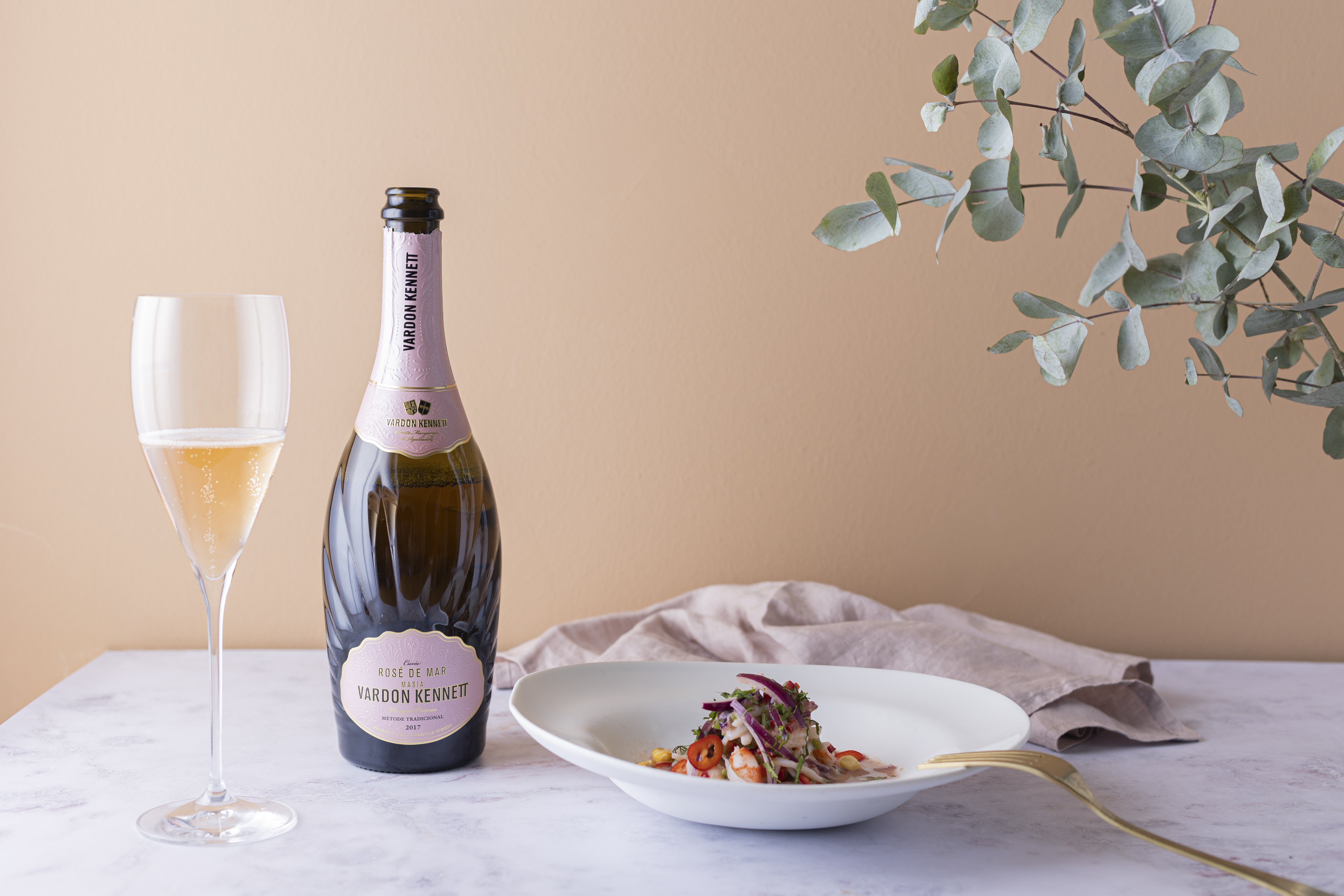
Cuvée Rosé de Mar, a Familia Torres property
Pazo das Bruxas 2022 by Torre Penelas, a Familia Torres property, was named Best of Show Rías Baixas at the prestigious Mundus Vini international competition.
The 2022 vintage comes in a Burgundy-style bottle, which has reduced its weight by 28%, thereby reducing its carbon emissions as well.
The brilliant yellow colour and golden highlights of Pazo das Bruxas evoke its birthplace. Its intense nose leads us into a world of white flowers, citrus, and fresh stone fruit, culminating in a lovely, succulent palate with a backbone of firm acidity that persists on the long flavourful finish.
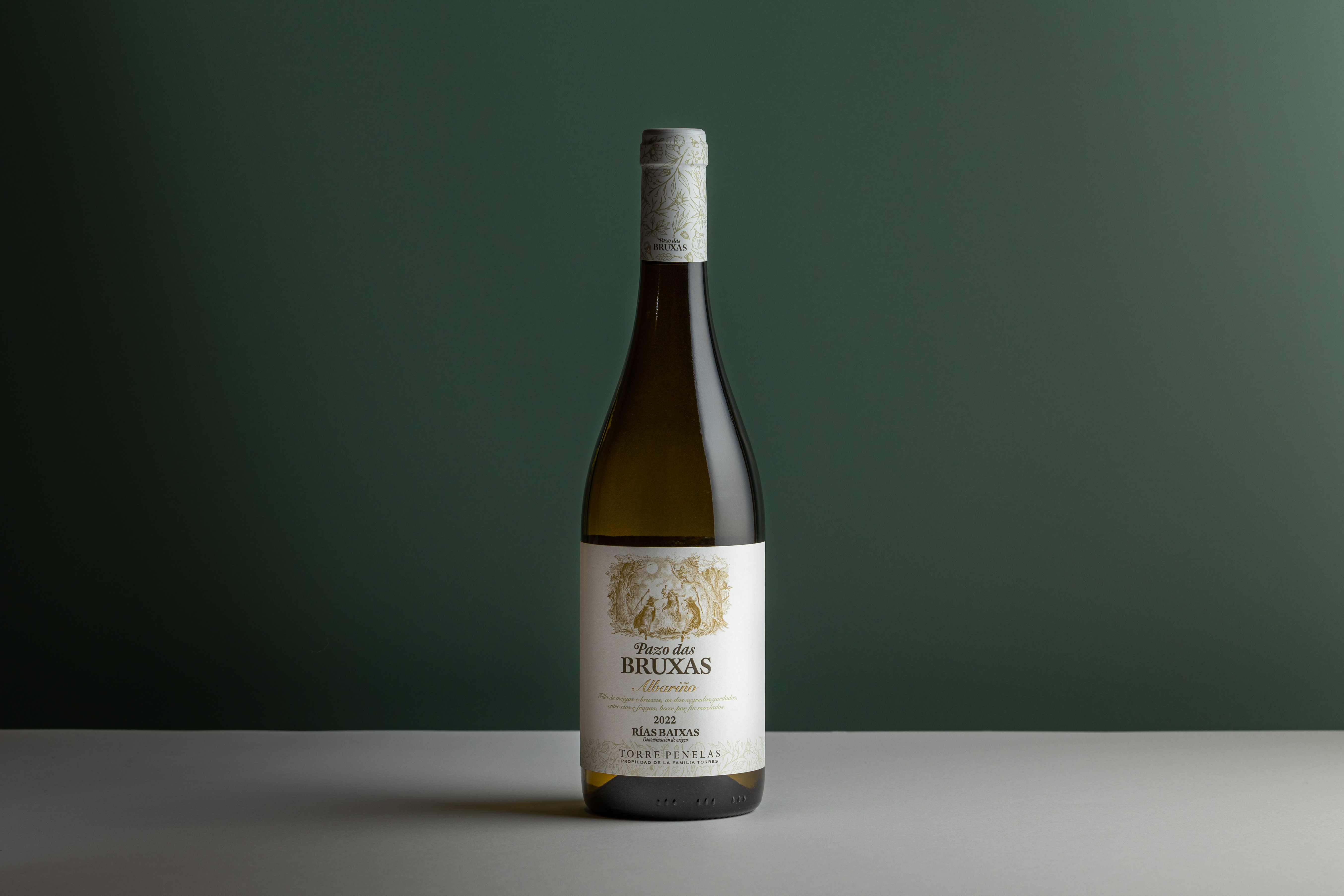
Pazo das Bruxas, a Familia Torres property, is a white wine made from the Albariño variety
We are witnessing a shift from a global to a local perspective. The recognition, preservation, and championing of what is most special and exceptional about our immediate environment is the foundation on which to build new ways of relating to the land, to where we live, and to life itself.
